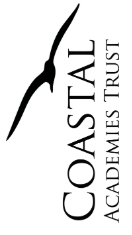- Home
- Curriculum
- Subject Information
- Business
Business
CURRICULUM INTENT STATEMENT
In the Business department we aim to embed the whole school's curriculum intent, through and beyond our curriculum. We do these in line with the three principles across the school. Globally Diverse, Ambitious for the Future and Inquisitive Learners.
| Globally Diverse | Ambitious for the Future | Inquisitive Learners |
|---|---|---|
|
|
|

Key Stage 4
In years 10 and 11 we follow the BTEC tech award in Enterprise, where students are taught to engage with all workings of an enterprise. We use local and national businesses as case studies which they build upon within their units of work. We have close connections to many local business owners, who support our students throughout various elements of the course. Students are taught to hone skills ranging from report writing, oral presentations, event management to employability skills and observations of practical skills. Students creativity is stretched through having to start their own business with a specific budget, audience and highlighting the customer needs to ensure success. The curriculum develops students' understanding of the financial workings of a business through studying break-even points, profit and loss, margin of safety and yearly accounts. As well as building upon students literacy skills through marketing and communication.
The curriculum is designed to inspire the next generation of entrepreneurs and local business owners.
BTEC Tech Awards Enterprise - Specification
Key Stage 5
At key stage 5 we offer two pathways. IB Business and Management as well as the BTEC National diploma/Extended diploma in business.
IB Business and Management is designed to further develop students' knowledge and understanding of business management tools and theories as well as providing students with an ability to apply a range of subject specific techniques. The curriculum allows students to analyse, discuss and evaluate business at local, national and international levels. Students develop as confident, creative and compassionate business leaders, entrepreneurs, social entrepreneurs and change agents. The internal assessment pushes students beyond the curriculum, developing an enquiry question into an international business looking at operational management and corporate social responsibility.
The BTEC National diploma/Extended diploma in business provides students with an in depth knowledge of the business environment as well as a range of transferable skills such as communication, perseverance and self motivation. The curriculum allows the students the opportunity to study a range of topics, from business marketing, environment, accounting, finance and recruitment and selection.
The broad range of topics covered in this program gives a solid foundation of knowledge that students can apply to a range of different business disciplines at university or high level apprenticeships.
